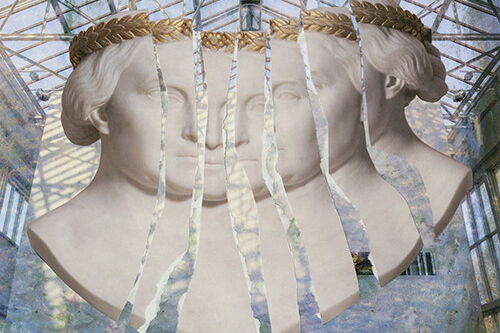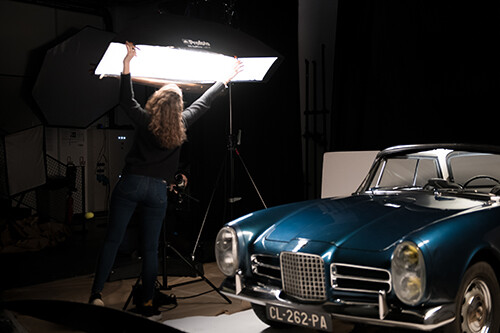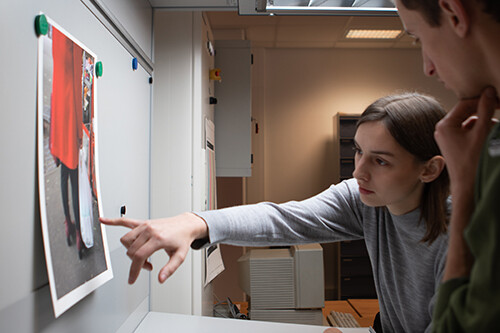The Masters in Photography
This is a training programme covering a wide range of artistic and technical creative skills implied in photography. It covers the fields of shooting and post-production (both digital and analogue) as well as systems management, technical and commercial support, project management, etc.
Objectives
This Master’s degree offers courses specific to the field of photography, plus technical and cultural fields associated with the digital economy and the heritage/archive field*.
This generalist training offers both modularity and adaptability to technological developments, and is rightly recognised and appreciated in the professional world.
Working sectors and outlets for our Photography graduates: fashion, photo studios and agencies / advertising, corporate / manufacturing, photo laboratories, retouching and image creation services, pre-press / industry / publishing / metrology (technical testing), press / distribution / public and cultural institutions / research / teaching.
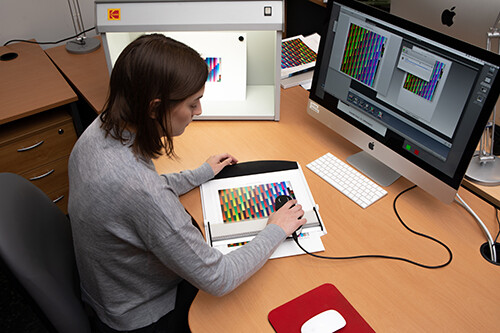
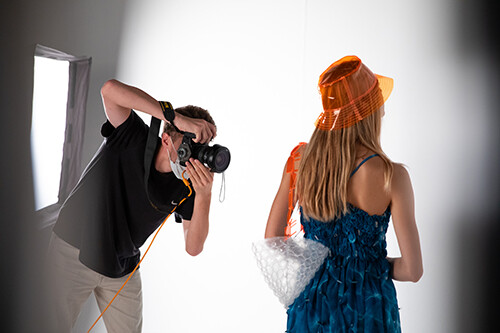
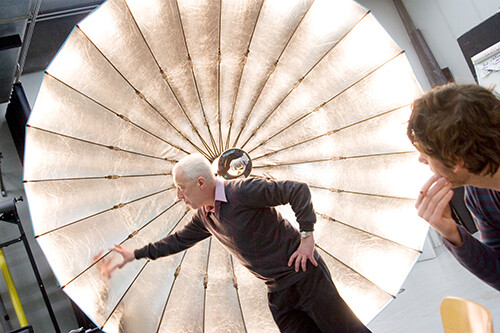
Principles
The recruitment of students with diverse profiles creates the conditions for open training.
The course, the choice between options and the individualised follow-up are designed, on the one hand, to mobilise students through unifying courses in the technical and artistic culture of the image, and, on the other hand, to progressively draw out the individual trajectories that lead to mature and personalised projects.
Some of the school’s workshops are closely associated with partners (Société du Grand Paris, Paris-Aéroports or the Musée d’Orsay, Duperré Fashion School, etc.), and mobility projects are envisaged for the second year.
On completion of the diploma, further studies for a doctorate or study abroad are encouraged.
First Year
The first year provides students with a knowledge base (basic concepts and tools) in the image formation process from capture to processing.
The learning of techniques, manipulation and artistic creation, practical work and projects permeate all the modules. A first training course is carried out to develop the group’s fundamental skills.
Some examples of creative projects:
- Car workshop (shooting and retouching), reportage module, the object in light (still life).
- Workshops on the application of photographic principles.
- Art and technique of the frame, art and technique of light, editing, documentary, video.
- Technology workshops: equipment technology, colour management, light sources, black and white and colour silver laboratory, electricity, the conservation of photographs.
- Algorithmic processing application workshops, interactive systems, video grading.
Second Year
The « Commission » module introduces projects that encourage individual expression while meeting specifications. These projects are based on partnerships that question the purpose of the image through exchanges of expertise and the understanding of cultural and economic realities.
The two other modules, « Heritage » and « Image Expertise » reinforce the knowledge of the photographic image through technical-scientific components.
In the second semester, the M1 offers students the opportunity to take a specific path with a choice of optional workshops. The combination chosen by each student will enable him or her to refine career objectives.
A few examples: 3D flow, alternative processing, editing, the chamber portrait, 360° production, video production, augmented reality and assisted/remote control.
Third Year
The first semester includes either a national or international mobility project or a creative experiment that will be featured in a public exhibition, or a real visual and sound scenographic device connecting photography to other media.
The dissertation and the associated production work provide training involving research into Human and Social Sciences or the Visual Arts, as well as applied or professional research. This work enables students to take stock of the training’s unifying elements, but also to target an individual field via a specialisation.
A diversity of methodological approaches (research-creation process, scientific and technical experimental approach or survey) is encouraged within the dissertation. The link between theory and practice is fundamental to the development of appropriate and useful questions.
The student takes this major step in his or her curriculum as their springboard to the world of work or further study.
